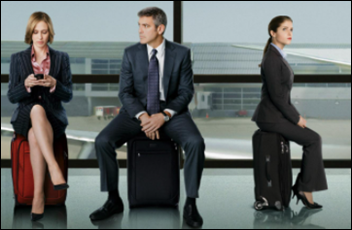EPtalk by Dr. Jayne 10/15/20
CMS has announced amended repayment terms for providers who received Medicare loans due to COVID-19. Repayment will begin one year from the issuance date of each provider’s (or supplier’s) advance payment. There is $106 billion in outstanding payments, which were intended to help bolster healthcare providers who had cash flow issues during the early stages of the pandemic. This is a positive development since they were originally scheduled to begin payback in August. Speaking with my friends who are independent physicians, they’re still struggling to get back to regular volumes and are worried about what things will be like once flu season hits.
Physicians across the country are still faced with shortages of personal protective equipment and aren’t equipped to manage COVID-positive patients in the office, so they often send them to the emergency department or local urgent care providers. If infections start to pick up, they’re going to be in the same place as they were last spring, if not worse. Providers who are still experiencing hardships can request an Extended Repayment Schedule that allows repayment over a three- to five-year period. In an interesting twist, CMS is also allowing recipients of the $175 billion in Provider Relief Funds to use those monies towards repaying the Medicare loans

St. Louis-based health system Ascension announced Monday that its 1,200 local employees will be able to work remotely permanently. The organization will be reviewing its local office footprint while supporting employees who have told leadership that they’re happy working remotely. Other local health systems are likely operating by the same playbook. Friends at BJC Healthcare mentioned that many remote IT and process improvement employees aren’t expected back in the office until June 2021. That gives the system plenty of time to evaluate their lease commitments and figure out where and how to shuffle the employees that eventually return in person.

From Non-Essential Travel: “Re: travel. Given the story of being in close confines with someone who flouted the rules, I’m curious whether you would recommend non-essential air travel to others at this time? Also curious whether your role, which brings you into more frequent contact with people who are COVID-19 positive, influences your decisions (i.e. you’re around it all day and have become accustomed to some level of risk). I know you discussed using air travel for important business reasons previously, but with so much conflicting information on what’s safe and what’s not, curious your take on the merits and risks of non-essential air travel at this time.” Good questions. I think that like everything else to do with this pandemic, the issue is one of weighing the pros and cons and finding the right comfort level with the decision. To be honest, for me this trip had significant elements related to mental health beyond just getting away.
I’ve been in a situation for six months now where I’ve been seeing twice (or sometimes more than twice) my usual patient volume within a 12-hour shift, which sometimes stretches to 13 or 14 hours to make sure all the patients are accommodated. My employer is extremely customer-focused, which creates a grueling environment for the staff. We don’t turn anyone away and we see all levels of acuity (at least until we can stabilize the patient while we call 911 and wait the heart-stopping 4 to 7 minutes for the fancy truck with the flashing lights to arrive). I’ve seen wounds and injuries that I haven’t seen since I worked in the big-city emergency department and have been expected to manage them until backup arrives. It’s gotten to the point where I know the ambulance-based paramedics by name.
When I finally make it home, I head straight to the shower, throw my work clothes in the washer, and then finally find dinner at 9:30 or 10 at night. The level of stress is pretty crazy, and some of us are left with few people with whom to commiserate. Non-medical friends and family members just cannot fathom what it’s like, although I’m not even in the worst of it by any stretch of the imagination.
Add that to the fact that we’re staring down the barrel of rising COVID numbers in my area, an extreme level of pushback against any kind of public health measures, and an impending flu season (which has already started for us) and I felt like if I didn’t get out of Dodge now I wouldn’t be able to do it for at least six or seven months.
The physician I met up with is much in the same position as I am. The reality of our dark thoughts led us to at least contemplate the fact that this is such a craptacular year that one never knows when one’s number might be up. I think a lot of people have forgotten (or didn’t realize) that back in March and April, physicians were updating their wills. That fear is still in the back of our heads, especially because we’re still seeing people who are deadly sick even though many in the US have returned to their normally scheduled programming, including leisure travel.
Bottom line: if not for this trip being an antidote to those dark thoughts, I would not have gone.
As someone who routinely encounters in the vicinity of 20 COVID-positive patients a day plus the other 40 to 60 who ultimately test negative, it’s nothing to throw on an N95 mask and some eyewear and hop on a plane with open middle seats (although I admit I fluid-restricted myself so I would have zero chance of needing to use the airplane lavatory, and did not eat or drink on the plane). Would I take my kids to Disney World just for fun? No way. Would I support someone making a trip to see a relative who might not be with them for much longer? Yes, with the right precautions.
I know the travel industry is hurting, along with many other sectors of the economy, but for the average person, I don’t know that the risk/benefit equation works out in favor of non-essential air travel. I’ve been wanting to make a non-essential trip to Boston to test-drive a custom musical instrument for nearly 10 months, and even though I could swab myself to meet the Massachusetts protocol and hop on a plane tomorrow (heaven knows I have enough unused airline tickets), I still haven’t done it.
The issue of the safety of air travel is certainly top of mind for many, and a recent article in the Journal of the American Medical Association looked at the topic. The comments on the article are interesting, and point out some level of conflict of interest among the authors that creates a shadow on their conclusion that the risk of contracting COVID during air travel is lower than that of being in an office, classroom, grocery story, or on a commuter train.
What do the rest of the road warriors out there think about air travel at this time? Leave a comment or email me.

Email Dr. Jayne.


Hard agree, and not just because I'm a spreadsheet nerd. Why are we all here? Isn't it in the service…